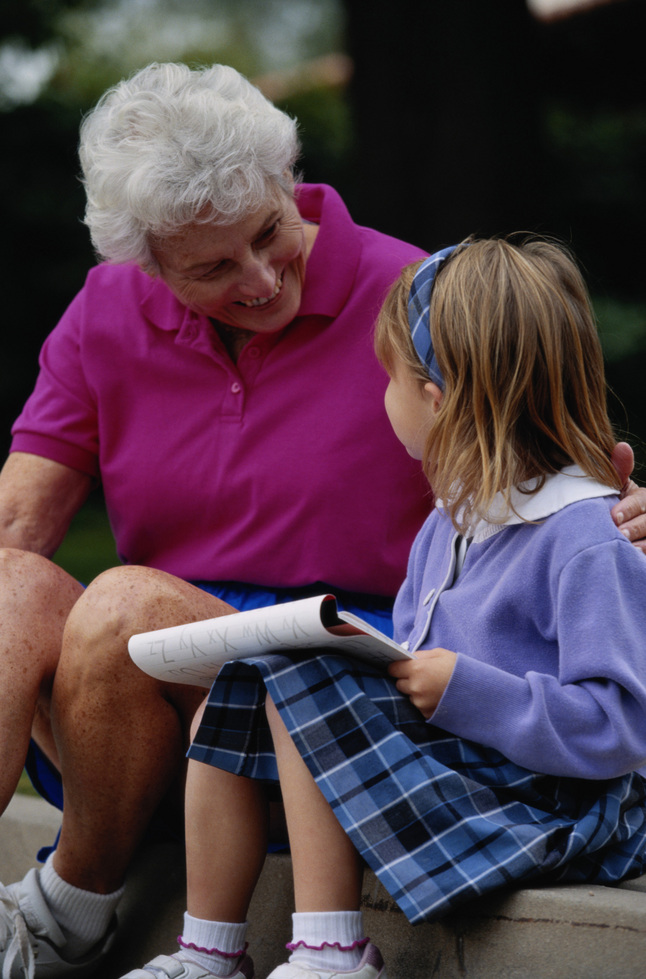AVAILABLE 24 HOURS A DAY, 365 DAYS OF THE YEAR!
405-440-2440



Copyright 2006 AutumnBridge Hospice, L.L.C

Grief Support
Give children a chance to ask questions
You can’t always guess what children are wondering or worrying about. Children with unanswered questions will fill in their own blanks. Their imaginations often create explanations that are much more disturbing than reality. Encourage them to ask all of their questions about your loved one’s illness, and answer them honestly.
Provide as much routine and security as possible
When the person the children have depended on is ill, the children will need reassurance that they will always be taken care of. If friends or other family members have offered help, suggest that they spend one-on-one time with the children (who have probably been getting less attention in the face of illness) or ask them to help the children continue with routine activities, such as getting to soccer practice or attending Sunday school. Children may need help in understanding the changes in behavior of the adults around them. Adults are likely to be increasingly sad, irritable, or distracted due to worry and fatigue. Children may need to know that they are not the reason the adults are behaving differently.
Grieving children
After your loved one’s death, remember that children will be grieving too. Give them the opportunity to express their feelings and emotions. Let them know that it’s okay to feel sad, angry, or confused. Find out how they would like to say goodbye to their loved one. If they’re old enough, they may want to attend the funeral. If not, they may want to write a goodbye letter or draw a picture that expresses their feelings. Keep their letters or artwork along with a picture of their loved one in a scrapbook or memory box. In the weeks or months to come, they may want to look at these again and talk about their feelings.
You can’t always guess what children are wondering or worrying about. Children with unanswered questions will fill in their own blanks. Their imaginations often create explanations that are much more disturbing than reality. Encourage them to ask all of their questions about your loved one’s illness, and answer them honestly.
Provide as much routine and security as possible
When the person the children have depended on is ill, the children will need reassurance that they will always be taken care of. If friends or other family members have offered help, suggest that they spend one-on-one time with the children (who have probably been getting less attention in the face of illness) or ask them to help the children continue with routine activities, such as getting to soccer practice or attending Sunday school. Children may need help in understanding the changes in behavior of the adults around them. Adults are likely to be increasingly sad, irritable, or distracted due to worry and fatigue. Children may need to know that they are not the reason the adults are behaving differently.
Grieving children
After your loved one’s death, remember that children will be grieving too. Give them the opportunity to express their feelings and emotions. Let them know that it’s okay to feel sad, angry, or confused. Find out how they would like to say goodbye to their loved one. If they’re old enough, they may want to attend the funeral. If not, they may want to write a goodbye letter or draw a picture that expresses their feelings. Keep their letters or artwork along with a picture of their loved one in a scrapbook or memory box. In the weeks or months to come, they may want to look at these again and talk about their feelings.

Helping Children Cope
Children are affected by the serious illness of a family member. Young people who are part of the caring circle of family and friends need help coping with the changes that illness and death bring. While children are wonderfully individual and unique in their reactions to the world, you can follow some general guidelines to help the children in your family cope.
Give timely, accurate information
Children are sensitive to emotional climates and will always sense when significant events are taking place. Withholding information from children simply doesn’t work. When explaining your loved one’s illness, use simple language and be as specific as possible. Call the disease by its name, such as lung cancer, diabetes, and heart disease. Describe why certain changes are happening and why your loved one is using certain medical equipment. For example, “Uncle Jim has oxygen tanks and a mask in his room to help him breathe better,” or “The medicine Grandma is taking for her cancer also makes her hair fall out.”
Children are affected by the serious illness of a family member. Young people who are part of the caring circle of family and friends need help coping with the changes that illness and death bring. While children are wonderfully individual and unique in their reactions to the world, you can follow some general guidelines to help the children in your family cope.
Give timely, accurate information
Children are sensitive to emotional climates and will always sense when significant events are taking place. Withholding information from children simply doesn’t work. When explaining your loved one’s illness, use simple language and be as specific as possible. Call the disease by its name, such as lung cancer, diabetes, and heart disease. Describe why certain changes are happening and why your loved one is using certain medical equipment. For example, “Uncle Jim has oxygen tanks and a mask in his room to help him breathe better,” or “The medicine Grandma is taking for her cancer also makes her hair fall out.”